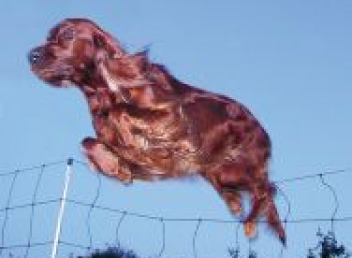Spring and good weather are finally upon us bringing a combination of sunshine and rain creating lush grazing. Though quite delightful to our horses the ingestion of this rich grass is commonly associated with increasing the risk of laminitis. The word laminitis strikes fear into the heart of any horse owner as the all too common condition leads to debilitating welfare problems and acute lameness in many cases.
Laminitis is a term to describes the process of an affected horse developing sensitive laminae of the foot which weakens and becomes inflamed. In some severe cases the laminae tissue can actually tear which results in the rotation or drop of the pedal bone.
There are many causes for laminitis which include the use of steroids, stress, hormone imbalances, mechanical trauma or toxaemia but it is often thought to be caused by obesity and over grazing on pasture that is very rich in sugar and starch. Combined with a lack of exercise, it can be a very bad combination for horses and ponies as they cannot burn off and use the sugary starches provided to them in some cases culmination in laminitis.
Some equines and more able to cope with lush pasture, depending on their workload and their weight. Utilising correct body condition scoring can help horse owners determine our horse’s weight, and whether they food consumption is correct for their type and their workload.
Avoiding Laminitis; Scientific Nutritional Product’s Top Tips
- Try to avoid turning out all day while your grazing is particularly lush or divide your pasture so your equine does not have access to the entire field. Remember it is the fructan levels in grass that are harmful and they are particularly high after a cool night followed by sunshine.
- Cut back your concentrate feed where you can and provide a Horese Vitamin and Minerals supplement such as Horse & Pony Multivitamin Supplement from Scientific Nutritional Products to ensure you are supplying all the nutrients that they need without adding excessive additional calories the horse may not require! If you are reducing the level of concentrate feed it is important to ensure your horse or pony is still receiving the Horse Vitamins and Minerals they require in the diet. Technically a horse suffering from Laminitis is not a ‘healthy’ animal so despite needing to reduce the calorie content of the diet it is vital they are not left without the nutrients they need.
- Soak your hay! Soaking your hay offers a simple measure to reduce the starch and sugar content allowing horse owners to supply ample forage for a healthy gut transit, but without risking their health!
- Regular exercise is vital! Research has shown that horses and ponies that have regular exercise are at far less risk of suffering laminitis.
- If your horse or pony’s feet are in poor condition as a result of Laminitis then feeding a Horse Biotin Hoof supplement is recommended. Robust Hoof contains essential Horse Biotin, Methionine, Lysine, Horse MSM and Bioplex minerals to promote healthy hoof growth.
- If you think your horse is suffering from Laminitis contact your vet immediately as they will require urgent treatment or suspect your horse may be developing Laminitis always contact your vet for advice before the condition gets worse.
To find out more about the supplement range available from Scientific Nutritional Products including Horse & Pony Multivitamin Supplement and Robust Hoof and Glucosamine for Dogs Joint Supplement visit their website www.horsesupplementsdirect.co.uk or Tel: 01377 254900 to speak to a member of the team.



